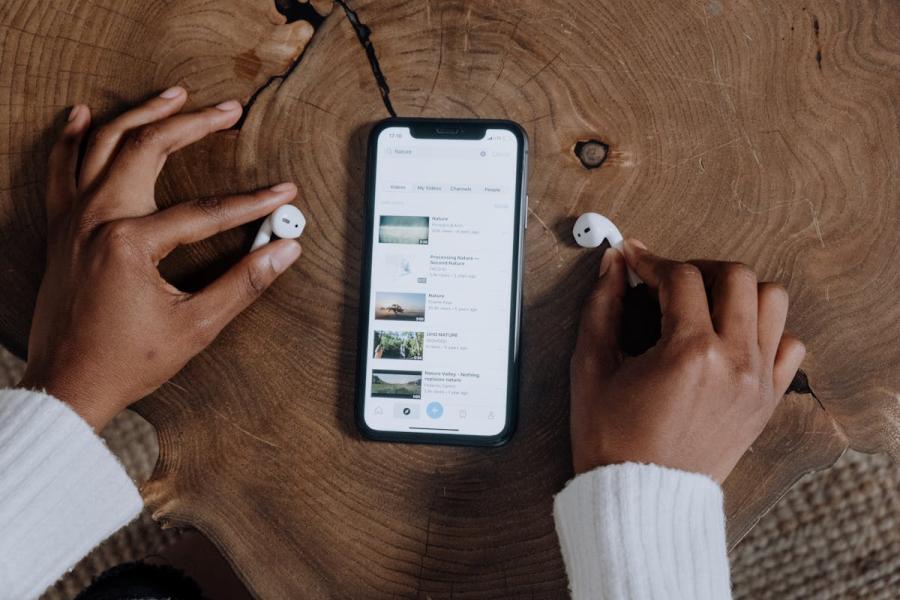Wireless headphones have become particularly sought after. While many users love them, concerns about their potential health risks have surfaced on social media. BBC Bitesize Other Side of the Story took a closer look at these concerns to separate fact from fiction – reports Sombor.info.
Are wireless headphones safe?
Wireless headphones (both over-ear and in-ear) use Bluetooth technology to connect with our phones. This involves an electromagnetic field, which has led some to believe it could harm our brains.
There have been scientific studies on wireless headphones and their potential risks. They emit a type of radiation called radiofrequency radiation, which operates at much lower frequencies than the type of radiation that can harm humans.
In 2019, Cancer Research UK stated that there is not enough evidence to suggest that Bluetooth headphones can cause harm and that studies conducted on large groups of people found no link to an increased risk of cancer. However, as of 2025, research into the effects of wireless headphones on our health is still ongoing.
Are expensive headphones better?
Noise-cancelling headphones are a relatively new invention. They contain special software that eliminates external noise, such as a TV or a barking dog, allowing the user to focus solely on one sound.
Which? magazine, where a team of experts tests various product models and brands, found that it’s possible to get good noise-cancelling functions even with headphones that cost around £50. So, it’s not always necessary to spend a lot of money – but in the end, how much someone spends is entirely up to them.
Do noise-cancelling headphones protect our hearing?
Other Side of the Story spoke with Claire Benton, president of the British Academy of Audiology, to learn more about noise-cancelling headphones. Claire explained that they can help protect hearing because focusing on one sound while eliminating all others means you don’t need to listen at high volume levels.
“You still need to follow good listening hygiene,” said Claire. “Take ear breaks, keep volume levels safe regardless, because there’s always the temptation to turn it up. Some people really enjoy loud music, and we know that’s very dangerous if you do it for too long. Eighty-five decibels (dB) over eight hours is what (official) regulations say is safe, without any hearing protection.”
Eighty-five decibels is equivalent to the noise of heavy traffic or a food blender. If you listened just three decibels louder, Claire explained, the safe listening time would be cut in half from eight hours to four.
Claire added: “If you’re someone who gets easily distracted by external noise or bothered by background sounds, noise-cancelling headphones may help you feel calmer in noisy places.”
Questions have been raised about whether overusing noise-cancelling headphones could change your sound-processing skills. There’s a possibility that wearing noise-cancelling headphones too often might interfere with your ability to process speech in noisy environments when you’re not wearing them – but for now, this remains anecdotal.
What’s the difference between headphones and earplugs?
Noise-cancelling headphones are one way to reduce sound levels, but they aren’t practical for live events such as concerts or music festivals. However, these are exactly the environments where protecting your ears matters – and earplugs can be an option.
Research by the Royal National Institute for Deaf People (RNID) found that 58% of people aged 18–28 experienced some form of hearing loss or hearing-related issue after being exposed to loud music. Most of the time the effects don’t last long, but continuous exposure to such loud environments can cause permanent damage. A new style of earplugs, now popular at festivals, allows sound to pass through but at a reduced level, making it easier to enjoy these events if high noise levels bother you.
Do earplugs work?
Earplugs really do work. Even the cheapest foam earplugs create a barrier between external sound and the ear canal – although care must be taken when inserting and removing them.
The average music festival has sound levels between 90 dB and 100 dB, while the human ear can safely withstand prolonged listening only up to 80 dB.
Saira Husein, an audiologist who shared her opinion on earplugs for the BBC Sounds Sliced Bread podcast, said: “From a health care perspective, I’m glad there’s now awareness, or greater awareness, about protecting hearing from noise. So definitely, when you go to a festival… make sure you have something to protect your ears.”
Trevor Cox, also featured on Sliced Bread, is a professor of acoustic engineering at the University of Salford. He said that if he were buying earplugs, he would look for those advertised with specific decibel reduction. However, he added: “I wouldn’t trust them enough to buy them because I wouldn’t know what they actually do until they arrived.”






